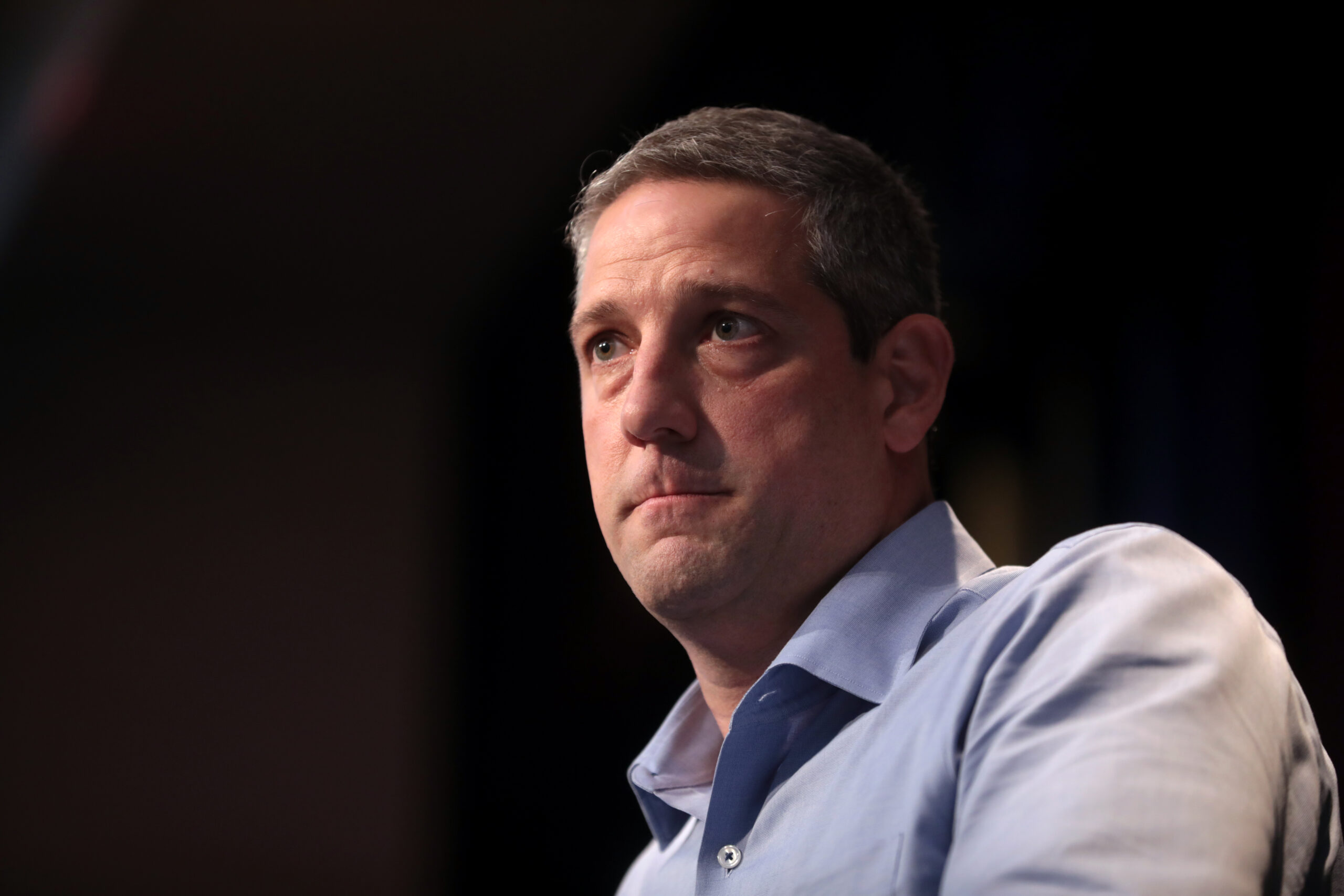United States Representative Tim Ryan announced on Thursday that he was dropping out of the Democratic presidential sweepstakes.
The congressman from Ohio’s 13th District had consistently struggled to raise both funds for his campaign and find traction in public opinion research polls.

Ryan took part in the first two rounds of debates (in June and July), but rising donor and polling thresholds kept him off the stage in the later rounds (in September and October). He has failed to get more than 1% in most polls.
Ryan’s campaign focused on winning back white working-class voters in the industrial Midwest. Ryan represents a district in western Ohio, a region that swung for Trump in 2016 after a long history of being a reliable Democratic stronghold.
2016 was also the year in which Ryan rose to national prominence by challenging Nancy Pelosi for the leadership of the House Democrats. Ryan argued that the Democrats’ then-recent presidential defeat showed that the party as a whole needed newer, younger leadership. Pelosi defeated his challenge only after promising to give newer House members leadership opportunities.
Ryan launched his bid for the Democratic presidential nomination in April 2019.
His campaign mixed economic populism with progressive ideas, attempting to craft a message tailored to Midwestern voters. Ryan promised to bring jobs back to the country’s manufacturing heartland through government investment in renewable energy and electric vehicles, and he argued that agricultural policy had broader applications in areas such as healthcare and climate justice.
Ryan’s political platform largely consisted of policy planks that are widely accepted within the Democratic Party: raising the minimum wage to $15 per hour, expanding student debt forgiveness, universal background checks for gun purchases, and legalization of marijuana.
However, Ryan’s ideas differed from progressive candidates’ in a number of areas: he declined to support Medicare for All; his rhetoric on the economic consequences of immigration sounded almost Trumpian at points; he supported increased defense spending; and he offered praise for Trump’s weaponization of tariffs.
In a contest that has been largely defined as a battle between candidates with old-fashioned neoliberal ideas (primarily Joe Biden) and those with bold progressive plans (such as Elizabeth Warren and Bernie Sanders), Ryan struggled to find a comfortable place for himself in the large Democratic field.
Ryan’s departure from the presidential race is likely to put pressure on similarly under-performing candidates to drop out; of the eighteen Democrats remaining in the race, only nine have qualified for November’s debate in Georgia. The qualifying candidates are Joe Biden, Elizabeth Warren, Bernie Sanders, Kamala Harris, Pete Buttigieg, Tom Steyer, Andrew Yang, Cory Booker, and Amy Klobuchar.
The candidates who have not made the cut for November’s debate are Beto O’Rourke, Tulsi Gabbard, Julián Castro, Michael Bennet, Steve Bullock, John Delaney, Joe Sestak, Marianne Williamson, and Wayne Messam.
Former H.U.D. Secretary Julián Castro’s campaign has already sent out distress signals, calling on supporters for at least $800,000 in donations in a recent email. The campaign has said that Castro may drop out as early as the end of October.
As for the other candidates in the bottom half of the field, many have hard questions to face as the race continues – especially those who hold elected positions. Tim Ryan has decided to run again for his congressional seat in 2020.

